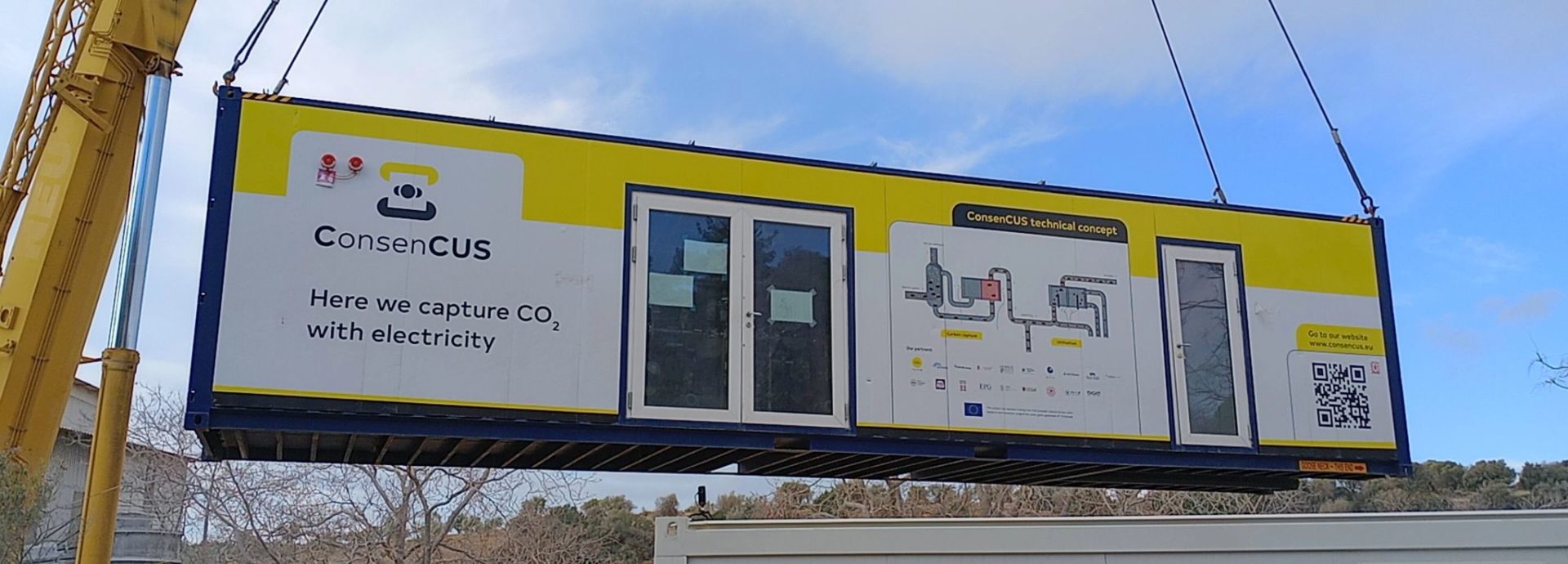Final stage of ConsenCUS project sees electrolysis unit relocate to Greece
NOTE: This press release has been published by Carbon Capture Jorunal in cooperation with GAFT – Sustainable Aviation Fuel Technology and project partner Coval Energy on 17 december 2024.
The EU funded ConsenCUS Project aims to provide an industrial roadmap to a net-zero carbon future. ConsenCUS is demonstrating this concept by integrating a demonstration unit at major cement, magnesia and oil refining installations.
Today’s announcement marks the last stage of the project as the electrolyzer demonstration unit moves to its final destination. The electrolyzer, which is testing how to turn different industrial emissions inputs into formic acid, is the first of its kind, with the pilot scheme expected to demonstrate its effectiveness in different environments.
Frank Schreurs, Chief Executive Officer for GAFT (and project partner Coval Energy) said, “We are delighted to be entering the final stage of the ConsenCUS project. By deploying our electrolysis unit in the field we are able to demonstrate how our technology supports European industrial decarbonisation, and can provide feedstock for Sustainable Aviation Fuel.”
“The project has been successful during its first two rounds and we are continuing to understand the potential of the electrolyzer demonstration unit for decarbonisation in the future. We would like to thank the ConsenCUs project team and our hosts at Aalborg, OMV, and Grecian Magnesite for supporting out work. We are now focused on scaling this up to full commercial scale and are in discussions with a number of customers.”
The results during the first two stages of testing, first with Aalborg Portland A/S in the Netherlands, second at OMV’s refinery in Romania, have been positive. The project presents technological innovations in the three main components of CCUS: (1) carbon capture based on alkali absorption, coupled to a novel electrodialysis cell (2) conversion of CO2 to formate and formic acid for the current market, as well as emerging markets and (3) safe cyclic loading of CO2 into salt formations and aquifers for storage.
This project has demonstrated that the GAFT technology can produce formic acid – the base for Sustainable Aviation Fuel using industrial emissions from a range of European applications along with using intermittent electricity supplies. The next stage of the technology development will see a commercial demonstration plant construction, likely in Europe.
Greece has announced its intention to develop a SAF strategy to support the EU’s mandate of all flights by 2030 using 6% of Sustainable Aviation Fuel (up from 0.05% today). GAFT’s technology makes aviation fuel that doesn’t harm the environment. Together we can make aviation reach net zero.
Air travel is responsible for c. 3.5% of human led global warming impact. Procuring feedstock for SAF can be challenging but GAFT’s process combines formic acid with renewable electricity and proprietary technology to produce scalable batch production that will meet the needs of the aviation sector.
Life cycle analysis and techno-economic evaluations of the project will address how the innovations can be exploited, optimising environmental benefits while providing sound business cases for the three sectors participating and beyond.
